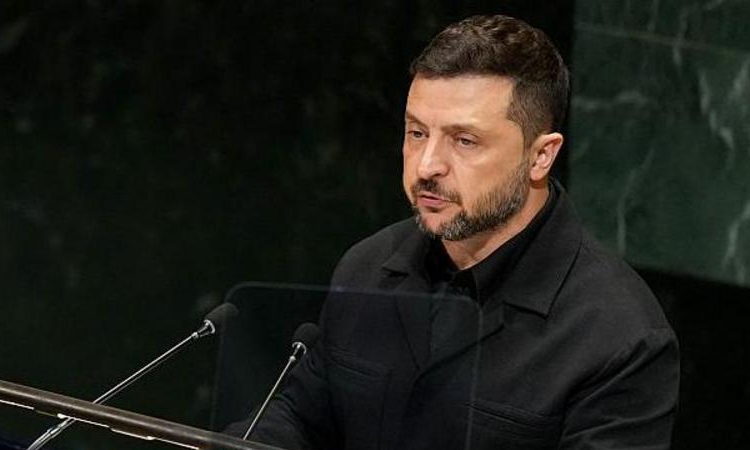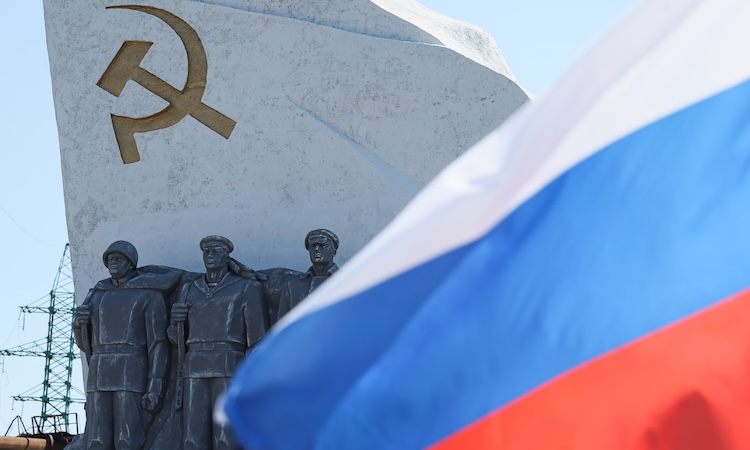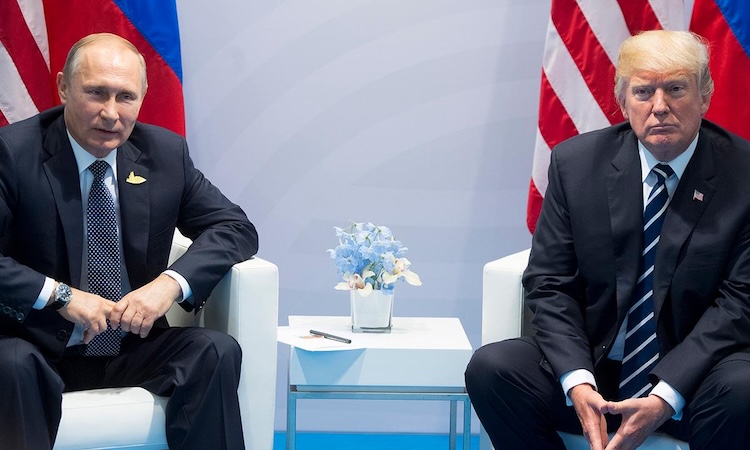With parliamentary and presidential elections looming in 2019, Ukraine is descending deeper into self-inflicted chaos whilst the west-backed Kiev coup government continues to blame all its troubles on Russia.
Shown on mainstream opinion polls as lagging way behind former prime minister Yulia Tymoshenko in the presidential stakes, incumbent president Petro Poroshenko has reportedly resorted to paying for opinion polls that come up with figures he finds more palatable, meanwhile stacking the Central Election Commission with his own people.
It is speculated that Poroshenko’s object in cooking the opinion poll books is to narrow Tymoshenko’s projected lead so that the public will be more likely to swallow a Poroshenko victory in the election.
Ukrainian news source UIA (Unian Information Agency) reports that an analyst with Concorde Capital, Zenon Zawada, “argues that it is crucial for Poroshenko to chip away at Tymoshenko’s lead as the most likely rival in what will be the almost inevitable second round to the presidential election. ‘That way, if Tymoshenko alleges vote fraud, Poroshenko will be able to claim that her small lead in the polls ahead of the elections doesn’t back up her claims. And that would reduce the public’s willingness to engage in mass protests.’” (Ukraine’s presidential election polls very widely on candidates’ popularity, 16 October 2018)
The UIA piece goes on to note: “Poroshenko has already been preparing the ground in case the contest comes down to a street fight. In August he rammed through a change in the law that added two new members to the Central Election Commission (CEC) and also gave the right of appointment to the president.”
Such is the instability of Poroshenko’s regime that accusations and counter-accusations of fraud are already at boiling point months before any actual vote has been cast. Yet the incumbent president, with a straight face, says he is “convinced that future elections will be very highly competitive” and characterised by “honesty, transparency, equality of opportunities regarding participation in electoral processes” and “full compliance with international and European standards”. (Upcoming elections will be highly competitive, Interfax Ukraine, 8 October 2018)
This is not a widely held view of the state of public life in Ukraine. So far from cleansing society of corruption at the highest levels (the boast that never left the lips of those who in 2014 violently overthrew the previous elected government and president and declared war on the Russophone south and east of the country), the arrival of the International Monetary Fund (IMF) gravy train created new opportunities for parasitic self-enrichment, whilst signalling for the masses a descent into the world of ‘structural adjustment’ and austerity.
Ammo dump blaze
Over the last couple of years there has been a string of massive fires and explosions at ammunition dumps around the country, most recently in October this year, in a town called Ichnia, near the city of Chernigov in the north.
Over 10,000 people had to be evacuated from around 30 towns in the area, and a ban was imposed on road travel and overflights. The blast from exploding munitions smashed doors and windows of houses and it took over 24 hours to extinguish the blaze.
An even larger ammo dump blaze occurred a year ago in Kalinovka in westcentral Vinnytsia province, requiring the evacuation of 30,000 people. That dump held some 200,000 tons of shells, mines, rockets and missiles spread over 150 buildings.
It was estimated that the Kalinovka inferno consumed some 32,000 tons of ammunition. To put that figure in context, the total tonnage of munitions used by Kiev against the antifascist resistance of the eastern Donbass region by then had come to 24,000 – 25 percent less than was lost in Kalinovka! Earlier such blazes occurred in Svatove and Balakliya.
Unsurprisingly these disasters for Ukraine’s military elicited the standard Kiev riposte: ‘It was the Russians wot done it.’ Curiously though, after the SBU (Ukraine’s secret police) had raised “sabotage gangs” as the most likely culprits, they went on to concede other possible causes, namely “the breach of fire safety or ammunition storage regulations” and, most intriguing of all, “deliberate arson performed in order to conceal the lack of ammunition”. (Ukraine’s security services consider three possible causes of Ichnia explosion, 112 UA, 9 October 2018)
In the case of Kalinovka, there appear to have been no fire or ammunition storage rules at all. Most of the buildings housing the ammo “not only lacked a roof, but even the special dirt walls meant to prevent a chain reaction of fires spreading to neighbouring depots in the event of an explosion”.
So far as storage regulations are concerned, wooden crates stuffed with shells simply rotted away where they were left nearly 30 years ago. The whole massive site was left under the guardianship of just 63 people, some of them pensioners.
A year ago, Russian news agency Sputnik quoted a Ukraine expert, Stanislav Byshok, as speculating that such conflagrations may in fact have been a deliberate scheme to conceal the theft and illegal sale of vast amounts of ammo.
These so-called accidents, he suggests, could really be “an attempt to cover up some sketchy schemes through which these weapons could be resold to other countries, to nations where hostilities are taking place and even to terrorist groups. It’s obvious that when one arranges such an explosion, it becomes impossible to establish how many weapons there were at the time of the fire. In this way, it’s possible to write off a vast amount of weaponry.” (Ukrainian army lost more shells in ammo depot fire than in three-year civil war, Sputnik, 2 October 2017)
The implications of the suggestion that the fires may have been started deliberately to hide the fact that vast quantities of ammo stocks had in fact gone Awol, either mislaid through ineptitude or sold to persons unknown in order to turn a private profit, are staggering.
Ukraine’s army is a patchwork quilt of regular troops and semi-official ultra-nationalist brigades dedicated to the memory of Nazi collaborator Stepan Bandera and his fascist OUN army. With political instability running at fever pitch in the run-up to next year’s elections, there arises the possibility that social forces hostile to the continued dominance of Poroshenko’s particular corner of crony capitalism could be thinking of plunging Ukraine back into the violent chaos on the back of which Poroshenko rode to power in the first place.
The leader of the Socialist Party, Illia Kyva (a ‘socialist’ be it noted who regards the socialist-leaning people’s republics of Donetsk and Lugansk as the enemy), posted some unparliamentary remarks on Facebook, asking: “How can we defend ourselves when ammunition depots constantly explode just to hide another theft!” and exclaiming: “Ammunition depots are burning again, only now in Chernihiv region! One may blame the external enemy for this, but it is time to face the truth. Svatove, Balakleya, Kalynivka … Ichnia! Who was punished? Our country today is being torn apart and the biggest reason for this is we are! Our impotent and blind government – total impunity and corruption!”
He added that without a reload of power “we cannot stop the aggressor and restore the territorial integrity of the country … Chaos eats our country.” (Blowing up ammo depots in Chernihiv region another attempt to conceal theft, Interfax Ukraine, 9 October 2018)
Azov Sea
The Kiev regime’s only way of dealing with this internal chaos is to blame everything on Russia and increase its Russophobic provocations.
It has done all it can to blockade the citizens of Crimea, to punish them for having dared to vote overwhelmingly in a 2014 referendum to rejoin Russia, even going so far as to cut off their water supply.
Thanks to the sanctions blocks imposed on Crimea by both Ukraine and western imperialism, a great deal of food has had to be transported from mainland Russia, with lorries queueing up to get the ferry. The ferry service itself is frequently interrupted by stormy weather, making deliveries uncertain.
To deal with this problem, Russia has built a 12-mile bridge to connect mainland Russia with Kerch in Crimea, which opened in May this year. This engineering marvel was greeted by Kiev with the customary tantrums, egged on by the west.
The EU blacklisted six companies involved in the construction of the bridge, whilst the Washington Examiner carried the headline “Ukraine should blow up Putin’s Crimea bridge”. (15 May 2018)
In March, with the bridge nearly finished, Ukraine detained a Crimean fishing boat for sailing under the Russian flag, an action which Russia correctly equated with that of Somali pirates. Another provocation occurred in August when Ukraine blocked a Russian tanker at the port of Kherson.
As a precautionary measure, given the threats to the bridge and the hostile actions of Ukraine, Russia stepped up her naval presence in the area and Russian border guards were tasked with ensuring safety of navigation in the Kerch Strait, the Azov Sea and the Black Sea.
This is in line with the 2003 agreement between Russia and Ukraine making the Azov Sea jointly controlled territory and allowing both countries free access. There have been demands from Ukraine’s parliament and elsewhere to tear up this agreement, but for the moment Kiev prefers to honour it in the letter whilst flouting it in practice.
The Russian embassy in Washington has shown how the US regurgitates Kiev’s false narrative. “US Department of State has raised concerns through its spokesperson Heather Nauert over legitimate inspections of vessels at the Sea of Azov. No arrests, no detentions, simply inspections. It is noteworthy (in order to understand the policy of double standards) that not a single vessel out of the ‘hundreds’ has been specified.” (Moscow urges Washington not to stand up for ‘outrageous words’, TASS, 31 August 2018)
A pawn of imperialism
Whether Poroshenko’s gang hangs onto power in 2019, or some other oligarchic permutation rides in on a tide of Russophobic demagogy, Ukraine will still be condemned to serve as a pawn for imperialist aggression against Russia until or unless it can find the strength to break away from the diktat of the IMF, Nato and the EU and make common cause with the courageous people of the Donbass.















